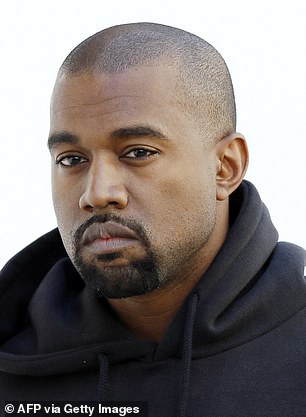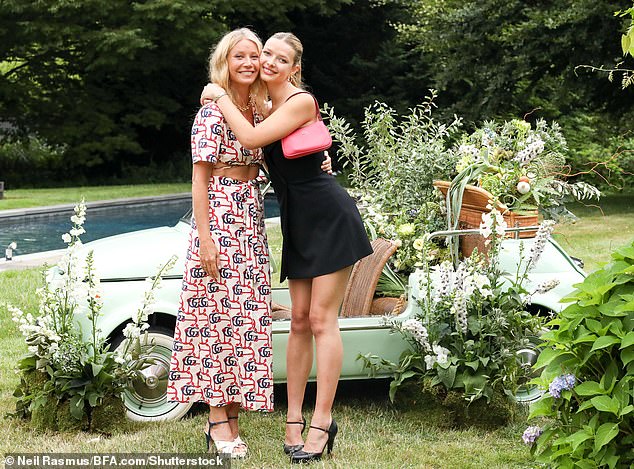Why baby names aren’t getting as quirky as you might think (even if there WAS an ‘Apple Paltrow’ effect)
Experts say baby names aren’t getting any crazier, despite what you might think.
When Hollywood icon Gwyneth Paltrow named her daughter Apple in 2004, she sparked a surge in parents choosing unconventional names.
However, analysis by MailOnline shows that the trend has now decreased.
And yet a lot of celebrities, including Kim Kardashian, Beyoncé and Elon Musk, have opted for unusual names in recent years.
Kim had North, Saint, Chicago and Psalm-West when she was still with ex Kanye West, while Beyonce had Blue Ivy and twins Rumi and Sir with fellow rapper Jay Z. Meanwhile, eccentric billionaire Musk had X Æ A-Xii (pronounced X Ash A-12), Exa Dark Sideræl and Techno Mechanicus with musician Grimes before their split.

Tesla founder and multibillionaire Elon Musk and rapper Kanye West have given their children unconventional names
The most unusual registrations for boys in 2022 are Swastik, Excel and Draco (all with three registrations), while Monalisa, Kale and Monet all appeared at least three times for girls.
Data from the Office for National Statistics (ONS) shows that 13,544 names were registered in England and Wales in 2022.
But this only concerns names that appear at least three times, which means that the actual number of victims will be even higher.
The total number is 56 percent higher than the 8,671 recorded in 1996, when modern ONS records began.
Over the same period, the number of babies born in England and Wales has fallen by 45,000, with experts saying there is a population crisis.
This means that the number of babies per registered name is now less than 45, far below the 75 observed in the mid-1990s.
However, the proportion of unique names – classified by MailOnline as having no more than three registrations per year – remained constant for boys over the 27-year analysis. About 23 per cent of registered boys’ names are unique.
Among girls, however, the share has increased by about 10 percentage points.
In 1996, about 23.5 percent of girls’ names were unique. By 2004, that had risen to 29.2 percent, when Apple was born to Gwyneth and Coldplay star Chris Martin.
2007 saw the biggest jump in unique names, MailOnline found. Rates continued to rise until 2012, when they began to fall out of favour.
Dr Rebecca Gregory, senior lecturer in historical linguistics and onomastics at the University of Nottingham, told MailOnline that unusual naming often rises and falls in an unpredictable way.
“It’s really unclear to what extent the trend for unusual names has ever been particularly strong, because it’s interesting when it happens and you hear a lot about it, but it can distort the actual popularity of the name,” she said.
Dr. Gregory says that as unique names become commonplace, there may be a shift back to more conventional names.

Actress Gwyneth Paltrow (left) and her daughter Apple Paltrow
Dr Gregory points out that in the case of the Coldplay frontman, his daughter’s name actually refers to a much more general, deep-rooted trope in English society.
“Especially for girls, turning common nouns into names is not unheard of,” she said.
‘Just like the Victorians did with flowers and plants like irises, roses, holly and lavender. These were new at the time, but are now considered standard.’
Dr Gregory added: ‘Over the last five years people have definitely started to hyphenate names, for example Ellie-May instead of Ellie. That means that ONS data won’t recognise it as Ellie or May.
‘We took a much more traditional approach and pulled names from an existing pool.
‘But elsewhere it’s much more common to just make up a name, so it’s not that crazy at all, depending on where you come from.’
